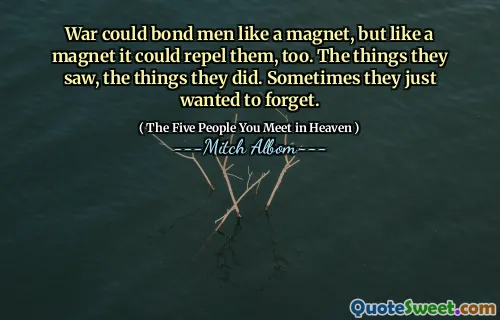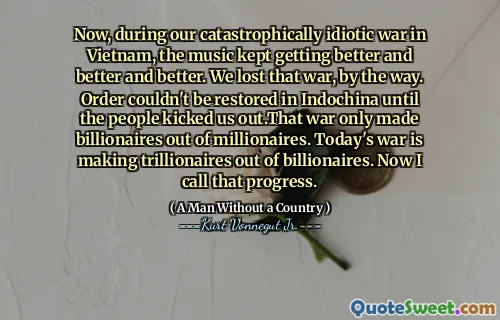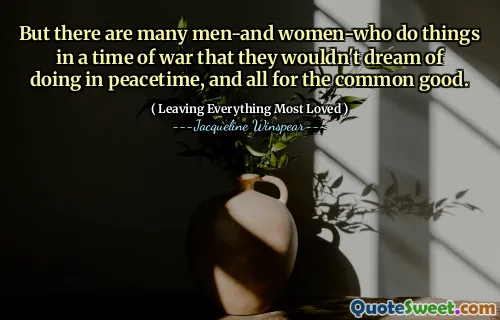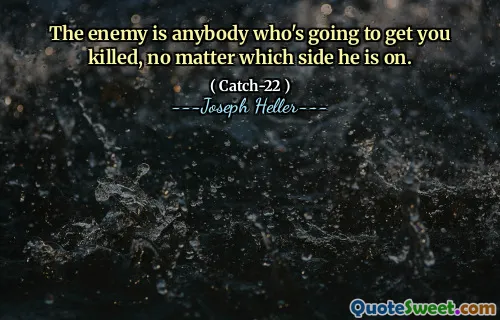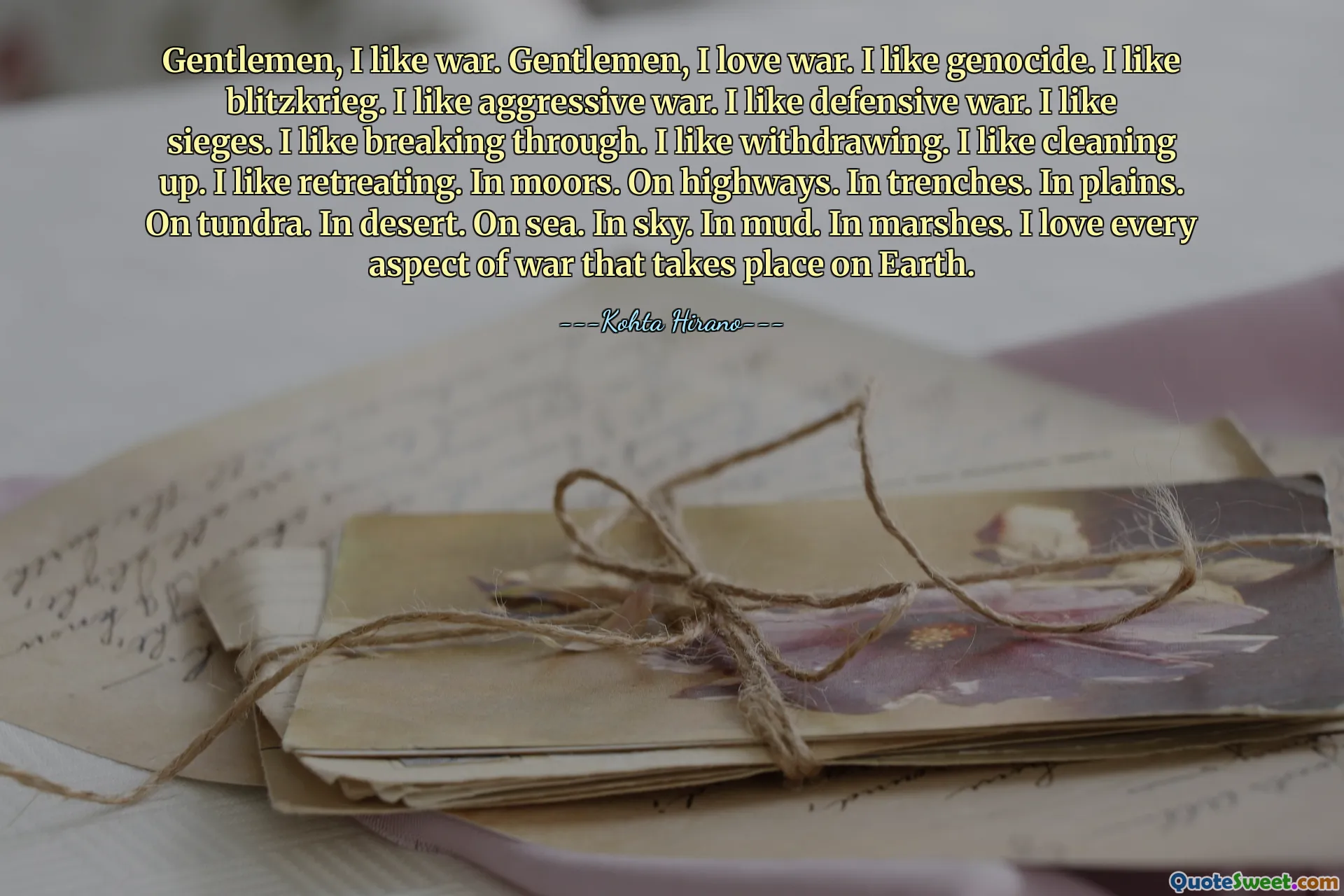
Gentlemen, I like war. Gentlemen, I love war. I like genocide. I like blitzkrieg. I like aggressive war. I like defensive war. I like sieges. I like breaking through. I like withdrawing. I like cleaning up. I like retreating. In moors. On highways. In trenches. In plains. On tundra. In desert. On sea. In sky. In mud. In marshes. I love every aspect of war that takes place on Earth.
The quote presents a strikingly detailed and provocative admiration for the multifaceted nature of war. It emphasizes that war is not merely a distant concept but an all-encompassing phenomenon that manifests in various terrains, strategies, and forms. Such an attitude invites reflection on how humans perceive conflict—not only as a means of conflict resolution but as an intrinsic aspect of human existence that spans landscapes from deserts to icy tundras, from the depths of the oceans to the skies. This perspective can evoke both admiration for the strategic complexity involved in warfare and concern over the glorification of violence. It prompts readers to consider the depth of humanity's relation to conflict; some might view it as a testament to human resilience and ingenuity, while others might see it as a troubling endorsement of destruction and suffering. The phrase's bluntness and breadth serve to underscore the pervasive and relentless presence of war throughout history, across cultures and terrains. The acknowledgment of different tactics—sieges, retreats, and breakthroughs—reflects the cyclical, unpredictable, and multifarious nature of warfare. Importantly, the quote seems to strip away moral judgment, focusing instead on the mechanical and strategic aspects. This can be seen as a way to dissect the reality of conflict but also as an indication of how war has become a normalized aspect of human society—something driven by deeper narratives of power, survival, and transformation. Overall, it challenges us to think about our own views on conflict, whether as necessary, destructive, or otherwise.






